If your wanderlust has a conscience, follow these golden rules.
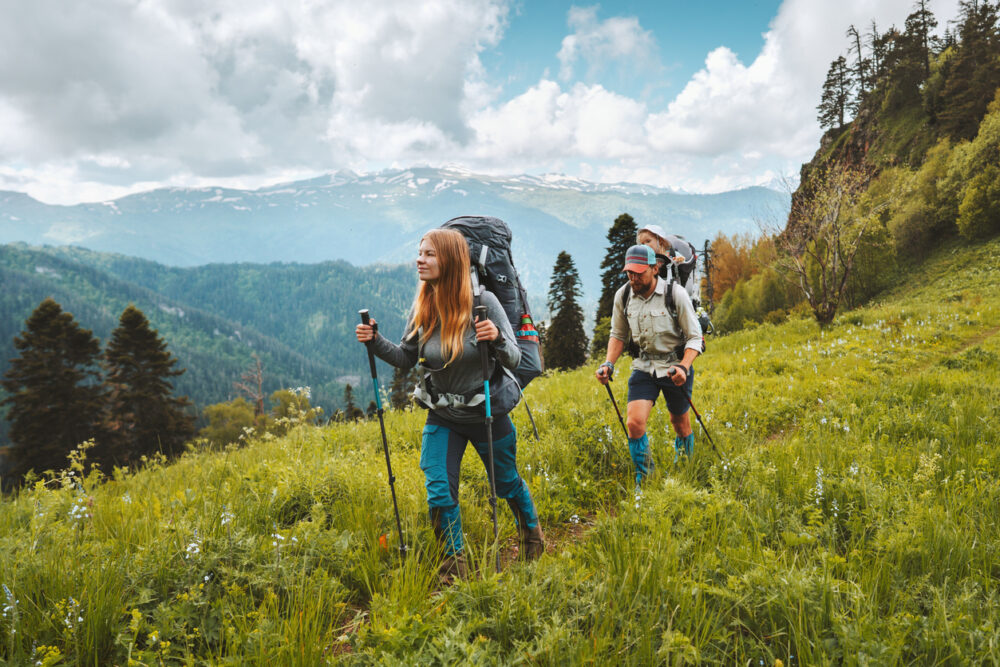
You probably don’t think of your passport as a pollution pass, but every trip you take leaves a trail. It’s not just the flight emissions or the plastic water bottles—it’s the choices you make every step of the way. The good news? You’ve got way more power than you think to shift the impact. The travel industry is a giant, but it bends to demand. And when enough travelers say, “We want better,” better starts happening. The catch is, most people don’t know where to start. You book the trip, pack the bags, and suddenly it feels like being eco-friendly is a luxury, not a baseline.
But you don’t need to be perfect. You just need to be aware. That’s the real game-changer. If you’ve ever come home from a trip thinking, “That was amazing, but I feel a little gross about the footprint I left,” you’re not alone. There’s a smarter way to explore—and it doesn’t kill the vibe.
1. Skip the big chain resorts and support local places instead.

Booking that all-inclusive mega-resort might feel like a no-brainer, but it’s often the least eco-friendly choice you can make. These places use a ton of resources, create mountains of waste, and funnel profits away from the communities you’re visiting. Choosing locally owned hotels, guesthouses, or eco-lodges keeps your money in the area and usually comes with a much lighter environmental footprint. Plus, it’s a better experience, according to Kaitlyn Brajcich at Sustainable Travel International.
You’ll actually meet locals, eat real food, and discover things you’d never get from a generic resort brochure. It’s like swapping a tourist filter for the real deal. And let’s be honest, do you really travel just to hang out in a place that looks like every other hotel back home? If you want to explore without exploiting, the switch is simple: go local. It’s one of the easiest and most rewarding ways to travel more responsibly without sacrificing comfort or fun.
2. Pack light and leave the “just in case” stuff at home.

Overpacking doesn’t just make your back ache—it also makes your carbon footprint bigger, as reported by the authors at Ethique. Planes burn more fuel the heavier they are, and if everyone’s suitcase is crammed with extra shoes and backup outfits, those emissions add up fast. Packing light means being intentional. You don’t need twelve shirts for a five-day trip.
Think layers, versatile pieces, and stuff that actually matches. It’s about traveling smarter, not lugging around a mobile closet. Plus, it frees you up. You’re not constantly digging through a mountain of stuff or stressing about airline weight limits. And when you support eco-friendly fashion—like clothes made from recycled or sustainable materials—you’re doubling down on the planet-friendly vibes. Bottom line: you’re not heading into the wilderness for six months. You’ll survive without that fourth pair of jeans. Traveling lighter is kinder to the environment, your sanity, and your spine.
3. Say no to single-use plastics like your trip depends on it.
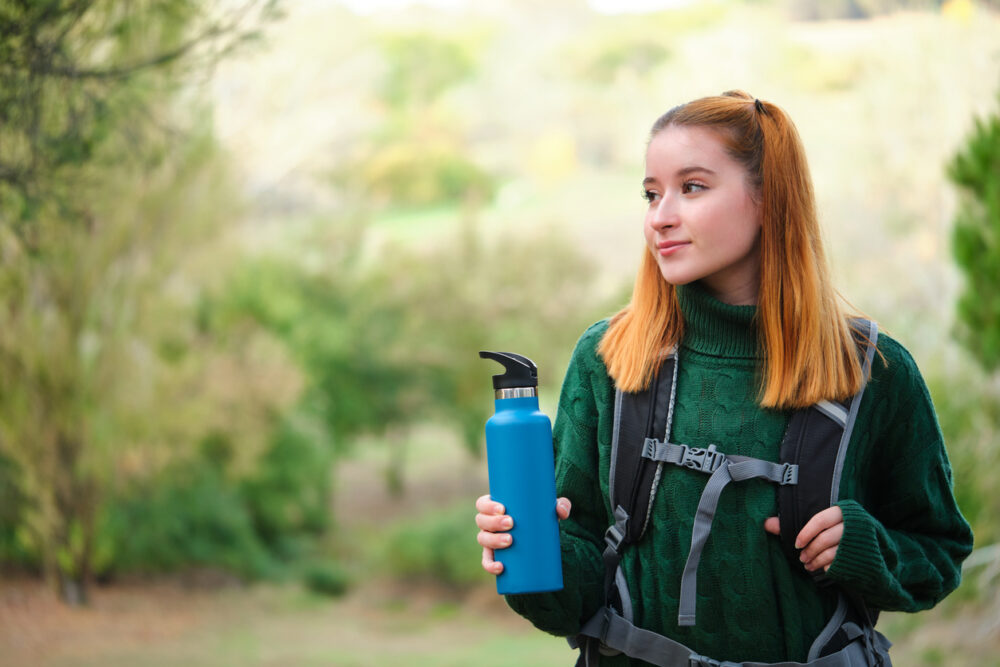
You already know single-use plastics are a nightmare, but when you’re traveling, it’s ridiculously easy to fall back into bad habits, as stated by the authors at Aosta Valley Freeride. Water bottles, straws, takeaway containers—they’re everywhere. And most tourist hotspots don’t have great waste management systems, which means that plastic often ends up in rivers, beaches, or burned in open air. The fix? Travel with a reusable water bottle, metal straw, and a collapsible tote. It’s a tiny shift that makes a massive difference.
Some countries even have refill stations and filtered fountains—you just need to look. And once you start doing it, you notice how unnecessary all the throwaway stuff really is. You’re not just being eco-conscious—you’re being prepared. Like a travel scout, but with a hipster flask. It’s not about perfection, but every plastic fork you skip is one less piece of garbage on a beach somewhere. That’s not nothing. That’s progress.
4. Treat wildlife like wildlife—not a selfie backdrop.
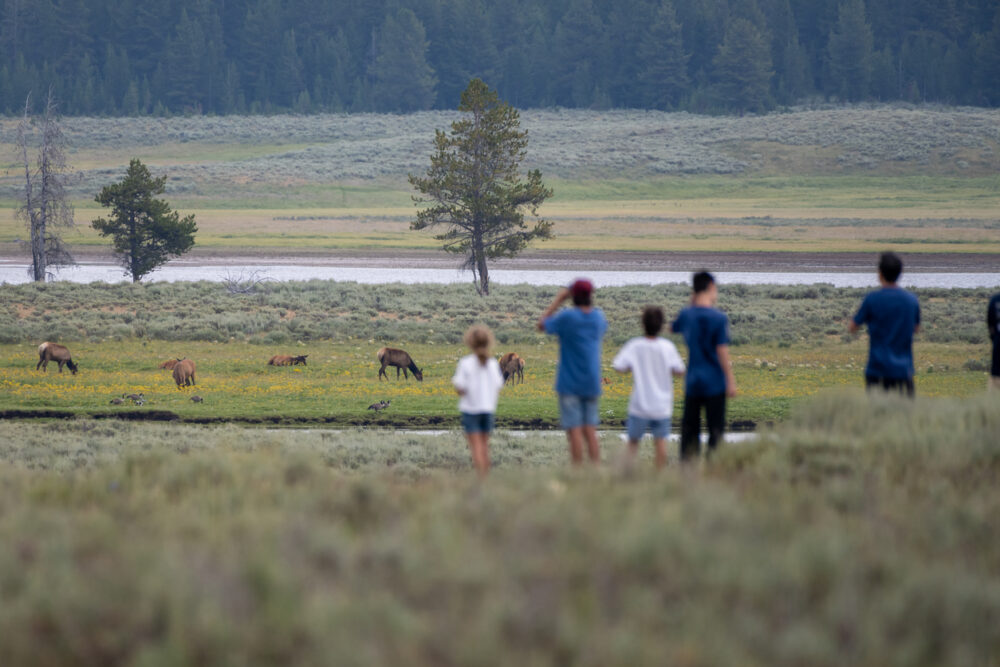
It’s tempting to get up close to exotic animals for the perfect photo, but your Instagram shot isn’t worth their stress—or suffering. Wild animals aren’t props, and they shouldn’t be touched, fed, or chased. Those “sanctuaries” that promise up-close encounters? A lot of them are just glorified petting zoos with sketchy ethics. Even well-meaning tourists can cause harm by crowding nesting sites, feeding animals junk food, or supporting companies that exploit wildlife for entertainment.
The real magic happens when you observe from a respectful distance and let animals be, well, animals. It’s better for them, and honestly, it’s more meaningful for you. You get a real, unscripted glimpse into their world. Think of yourself as a quiet guest, not a disruptive intruder. When in doubt, ask yourself: Would I want someone doing this to my dog? If the answer is no, maybe skip the tiger cuddle.
5. Choose greener ways to get around whenever you can.
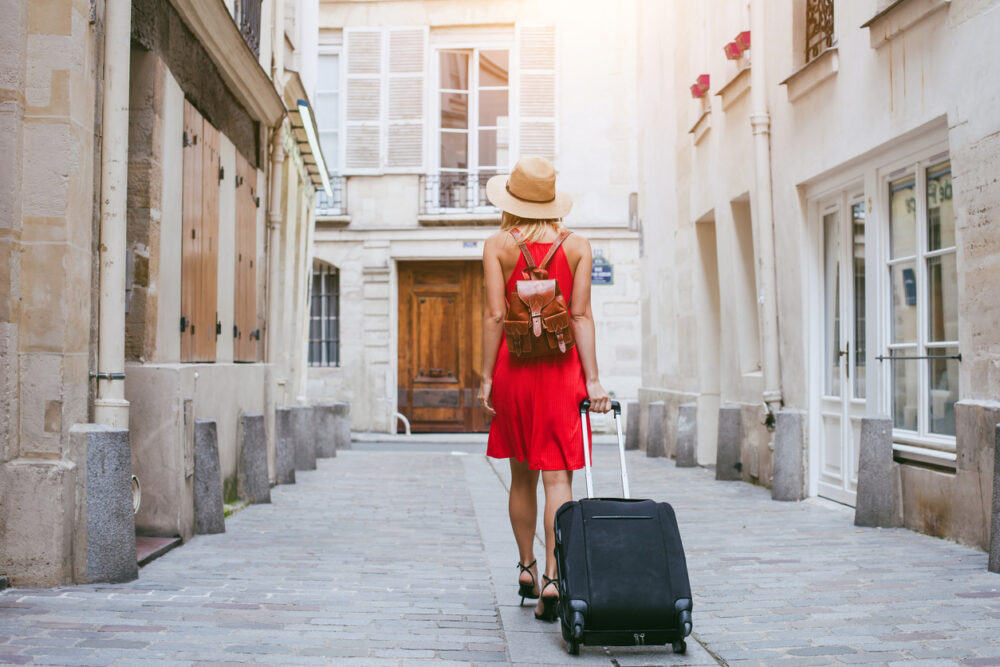
Planes are carbon bombs, no question—but they’re not always avoidable. What you can control is how you move once you land. Trains, buses, bikes, and even walking are all way better than renting a gas-guzzling SUV. Public transport might not be glamorous, but it gets you close to real life. You see the neighborhoods, hear the language, and maybe even strike up a conversation. It’s part of the adventure. Some cities have bike-share programs or electric scooters that are both fun and footprint-friendly.
And for longer distances, trains are a scenic, chill way to go—plus, they usually run on cleaner energy than planes. You don’t have to go full backpacker-with-a-bicycle to make better choices. Just think about what’s necessary and what’s just habit. You’ll spend less, see more, and leave a lighter mark. That’s the kind of travel story worth telling.
6. Eat like a local, and skip the imported junk.

Food is culture, plain and simple. When you’re traveling and eating stuff that’s flown in from halfway across the planet, you’re missing the point—and racking up a carbon footprint that could circle the globe. Eating local isn’t just about taste (though, spoiler: it tastes way better). It supports nearby farmers, reduces transportation emissions, and gives you a real connection to where you are.
Trying street food, family-run restaurants, or regional specialties is part of the adventure. And when you skip big international chains, you’re not just cutting emissions—you’re voting with your dollars for sustainability and authenticity. It doesn’t mean you can’t indulge or enjoy your favorite comfort food once in a while. But if you’re in Thailand and ordering spaghetti every night, you’re doing it wrong. The closer your food is to the soil it grew in, the better it usually is—for your tastebuds and the planet.
7. Be stingy with your energy and water use.
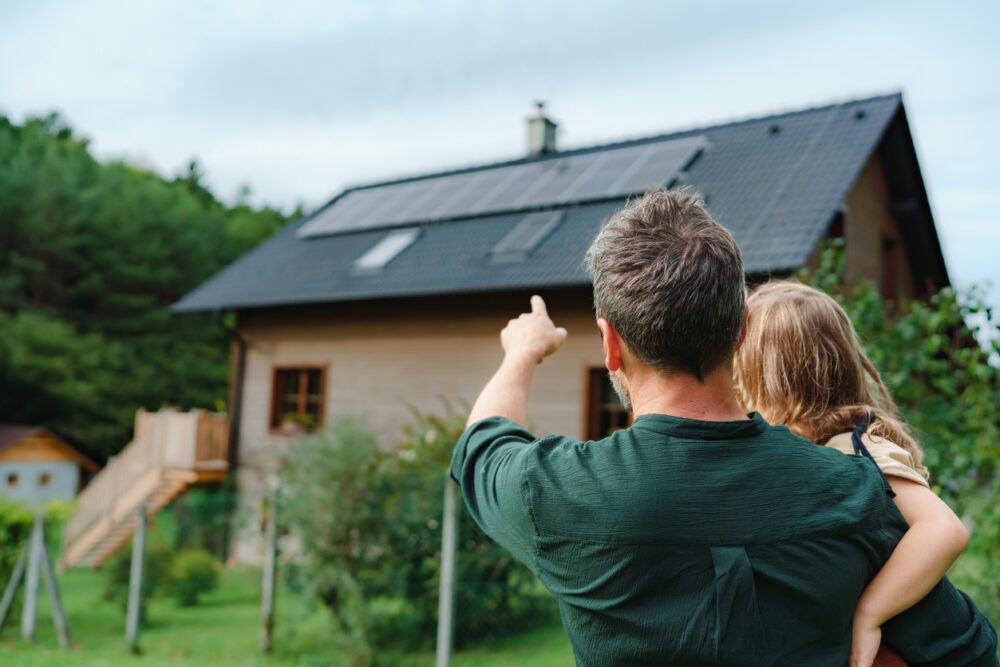
It’s easy to forget, but that endless hotel hot water and round-the-clock AC come at a cost. Many tourist areas struggle with limited resources, and travelers often use way more than locals do. Long showers, blasting the air conditioner, leaving the lights on when you’re out sightseeing—it all adds up. Being a considerate guest means treating resources like they’re limited—because they are. Turn things off. Reuse your towels. Ask if the hotel uses renewable energy or has water-saving measures. Small things, big ripple.
And if you’re camping or staying in eco-lodges, it’s even more important. Some places rely on solar or rainwater systems that are super efficient but only if visitors don’t go overboard. You don’t have to rough it, just be aware. Use only what you need, not what you can get away with. It’s respectful, responsible, and surprisingly easy once you get into the habit.
8. Offset your flights—but choose wisely.

Look, flying isn’t great for the planet. But if you’re going to hop on a plane, the least you can do is balance the scales. Carbon offsets can be a way to do that—but they’re not all created equal. Some are basically scams, while others fund legit projects like reforestation, renewable energy, or community-based sustainability programs. The key is to do a little digging. Look for programs certified by trusted environmental organizations, and be wary of anything that sounds too good to be true.
Offsets aren’t a free pass to pollute—they’re a way to take some responsibility for emissions you can’t avoid. It’s not perfect, but it’s a start. And when you pair it with other smart choices—like flying less often or choosing nonstop routes—you’re making a real difference. Don’t just check a box and call it a day. Make it part of your travel ethos.
9. Keep your footprint small by sticking to marked trails.
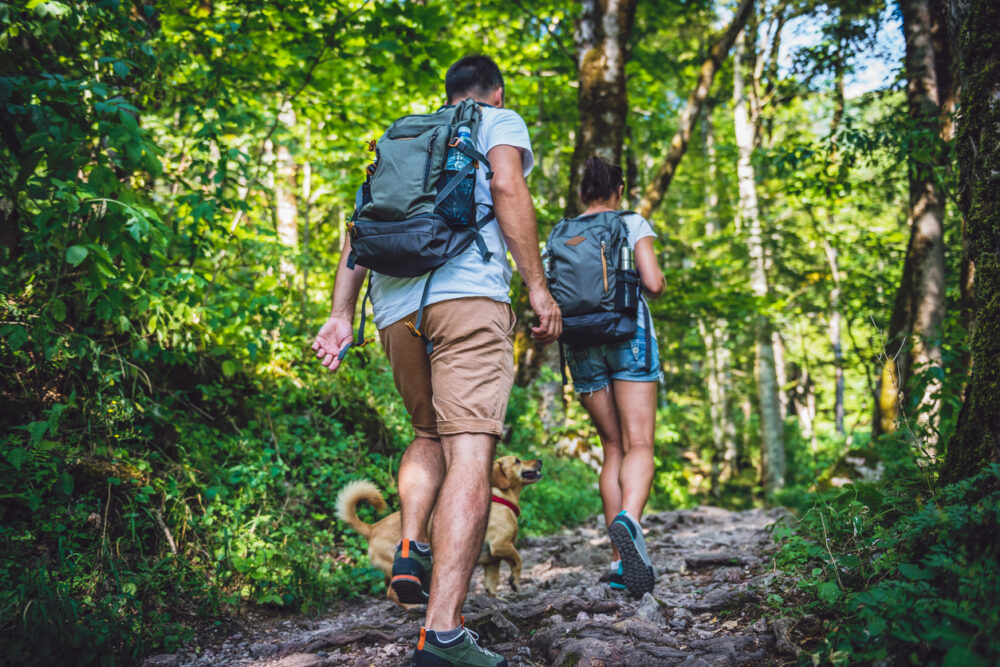
You might be tempted to wander off the beaten path, but sometimes that’s exactly what wrecks the place. Sensitive ecosystems can get trampled fast, and wildlife gets spooked when humans barge in unannounced. Trails exist for a reason. They’re designed to minimize impact while still giving you access to beauty and adventure. Straying off them might seem harmless, but over time, it causes erosion, damages fragile plants, and disturbs habitats. Plus, in some areas, going rogue can be dangerous—for you and for the creatures living there.
Respect the space you’re in. Take only photos, leave only footprints—and keep those footprints where they belong. You’ll still get your epic view, but you won’t be part of the problem. And if you really want to explore deeper? Look for guided eco-tours that work with conservationists. That way, your curiosity helps preserve nature instead of harming it.
10. Travel in the off-season and avoid overtourism hotspots.
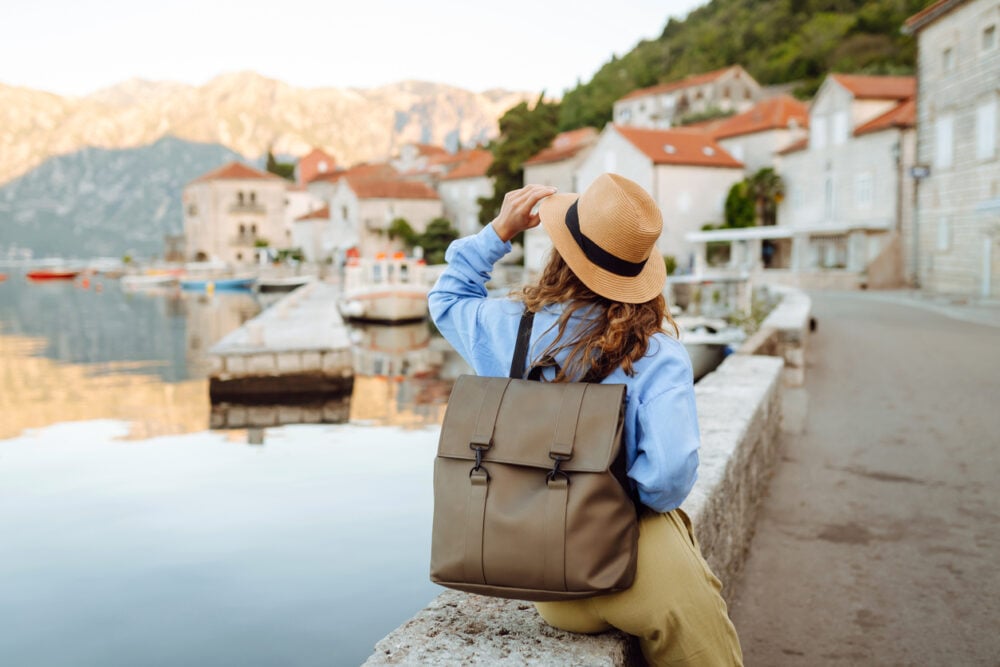
Crowds aren’t just annoying—they’re terrible for the environment. When a destination is overloaded with tourists, everything strains: water supplies, waste systems, public transport, and even the locals’ patience. Visiting during peak season means you’re adding to that pressure. But if you go off-season, you ease the burden and often have a better experience. Fewer people means more space, cheaper prices, and the chance to actually connect with the place and its people.
Same goes for skipping the “top 10” list and choosing a lesser-known destination. It spreads the economic benefit and reduces the damage done to places that are buckling under too much love. You’re not missing out—you’re just seeing the world on your own terms, with less noise and more heart. Smart travel isn’t just about where you go, but when and how you go. Off-season might just be your new favorite time to explore.
11. Buy fewer souvenirs and make them meaningful.

It’s tempting to grab a suitcase full of trinkets to remember your trip—but most of those souvenirs are mass-produced junk made halfway across the world. Not only are they often environmentally sketchy, they rarely support local artisans or economies.
Instead, find one or two things that are actually made where you are—handicrafts, artwork, or something edible. It’s better for the planet, more personal, and usually more appreciated by the people you’re buying it from. Plus, your memories don’t live in fridge magnets. They live in your photos, your stories, and the weird little moments that happen when you’re in a new place. Travel isn’t about accumulating stuff—it’s about connection. Choose keepsakes that reflect that, and you’ll walk away with something way more valuable than a “Made in China” keychain.
12. Respect local culture like it’s part of the planet too.
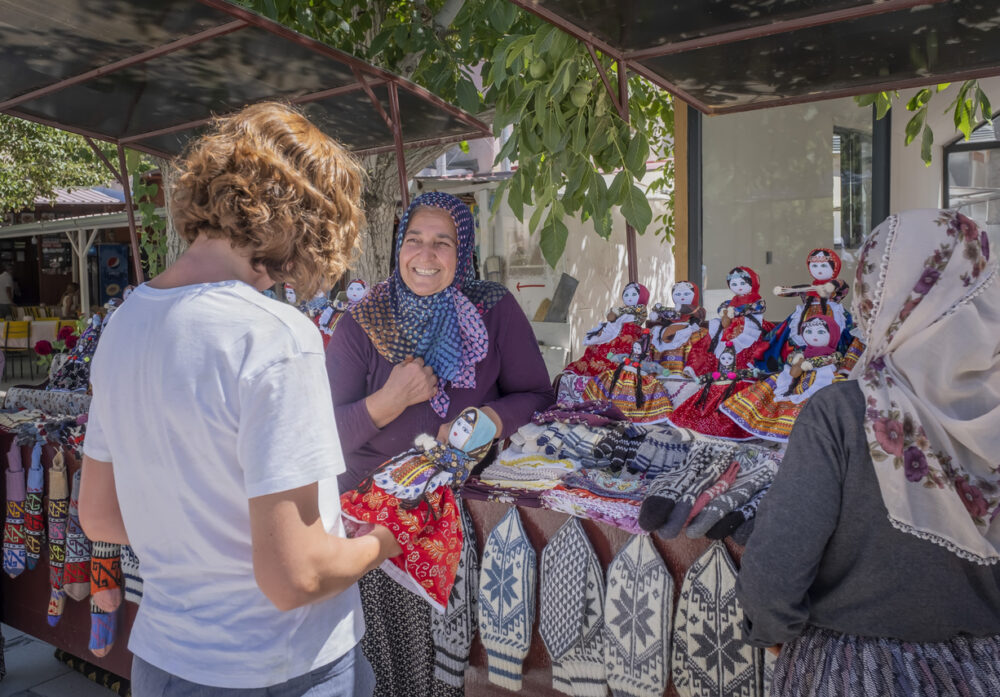
Being eco-friendly isn’t just about the trees and oceans—it’s also about the people. Respecting local customs, dress codes, and traditions is part of traveling responsibly. Cultural erosion happens when tourism steamrolls through communities, expecting them to adapt to visitor comfort. Instead, show up with humility and curiosity.
Learn a few words of the language. Ask questions. Don’t treat cultural practices like a photo op. When you support local guides, artists, and storytellers, you help preserve heritage and identity—two things that are just as endangered as any rainforest. A respectful traveler is a sustainable traveler. It’s not hard—it just means putting people on equal footing with nature in your travel priorities. That mindset shift changes everything.
13. Use your voice and choices to demand better from the travel industry.

Every time you book a hotel, review a tour, or share your trip online, you’re influencing the system. Your money is a vote, and your words carry weight. Ask hotels about their sustainability practices. Choose airlines with better emissions records. Support companies that pay fair wages and give back to communities. And if a place is doing something shady? Call it out. Post a review. Send an email. Share what you learn with your friends.
The more we expect better, the faster the industry adapts. You don’t have to be an activist with a megaphone to create change. Just be a conscious traveler with standards. Companies notice that. Other travelers notice that. And the planet? Yeah, it notices too.